By: Brandon Bush
CONTENT WARNING: “The Falcon and the Winter Soldier” spoilers ahead. Read at your own discretion.
In the season finale of Marvel’s “The Falcon and the Winter Soldier,” fans finally got to see Sam Wilson, who is played by Anthony Mackie and is also known as The Falcon, take on the mantle of Captain America. This long-awaited milestone was teased at the end of “Avengers: Endgame” (2019), when Steve Rogers, the former Captain America we all know and love, propitiously handed Sam the famed red, white and blue vibranium shield. However, as many have seen throughout the series, Sam wrestles with the legacy of the star-spangled shield and the title of Captain America that comes along with it.
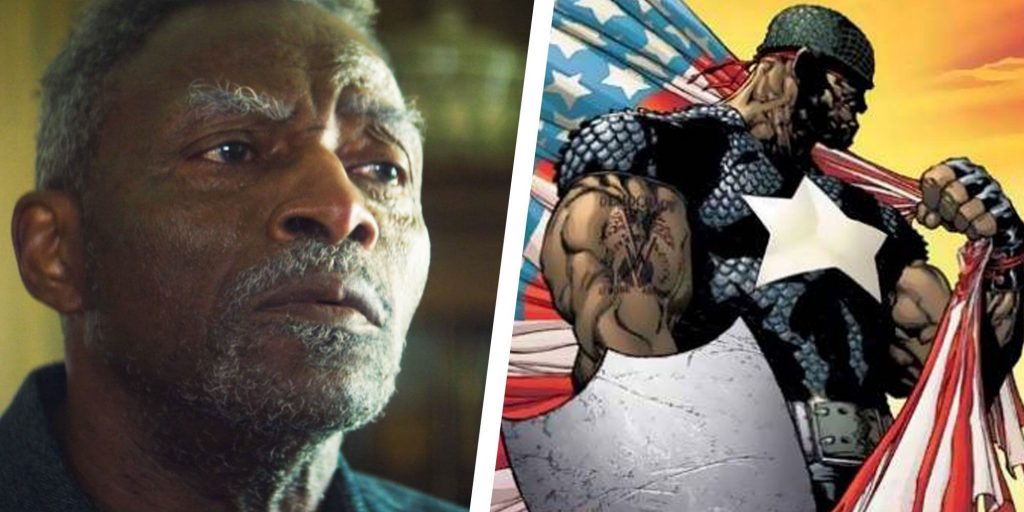
Isaiah Bradley: The First Black Captain America
The Marvel comic book series “Truth: Red, White & Black,” written by Robert Morales and illustrated by Kyle Baker (2003), reveals a program reminiscent of the Tuskegee Syphilis Study that experimented on Black men to create more American super-soldiers like Steve Rogers. This is adapted in the show, where Isaiah Bradley, a Black soldier serving during the Korean War, was one of the soldiers unknowingly injected with a recreated super-soldier serum who subsequently acted on behalf of the United States military to complete missions. However, due to the flaws in the serum, other subjects became unstable and died off one by one, leaving Isaiah as the sole survivor.
In his debut scene in episode two of “The Falcon and the Winter Soldier,” Isaiah divulged that at one point he was sent to eliminate the Winter Soldier, or Bucky Barnes, played by Sebastian Stan. Isaiah even snuck out of his bunker to single-handedly free his bunker-mates who were captured behind enemy lines. Unlike Steve, who was celebrated for doing a similarly heroic act less than 20 years earlier in “Captain America: The First Avenger” (2011), Isaiah was court-martialed and sentenced to 30 years in prison where different government agencies conducted experiments on him and extracted his blood to see why he had been the only subject to survive the super-soldier experiments. He was later freed by a pity-ridden nurse, who had him declared dead and relocated to Baltimore. There, he would live out the rest of his life with resentment and hatred, being erased from American history.
The Legacy of a Tainted Symbol
One thing is incredibly apparent in “The Falcon and the Winter Soldier”: the legacy of Captain America is not as patriotic as it assumes itself to be. History is often not as cut and dry as many of us are taught to believe, and the arc of Steve Rogers and the Captain America moniker throughout the first three phases of the Marvel Cinematic Universe (MCU) proves that. Despite Roger’s sacrifice to save America from its imminent doom, the world was left with a symbol of American imperialism and a biological arms race to create the next generation of super soldiers.
The show does a decent job in recognizing the struggle of veterans trying to attain benefits and services after serving in the military, but has a hard time addressing how racism played into the dynamics of the relationships between Steve Rogers and Sam Wilson, as well as Bucky and Sam Wilson. Sam makes it clear that he wanted to retire the mantle of Captain America both out of honor for Steve and to avoid the hefty legacy of the moniker itself. The complexity of having a Black man carry the shield and officially take on the title is subtly referenced, but it is not addressed until we meet Isaiah Bradley. Amidst all of this, Bucky – in all of his whiteness – had the audacity to pack his emotional baggage onto Sam who turned down Steve’s proposition to become the next Captain America, saying that if Steve was wrong about believing in Sam then he was also wrong about believing in Bucky. Steve and Bucky’s blatant lack of cultural and social awareness gave them the excuse to look beyond Sam’s identity as a Black man to impose upon him a moniker that was representative of so much hurt and damage.
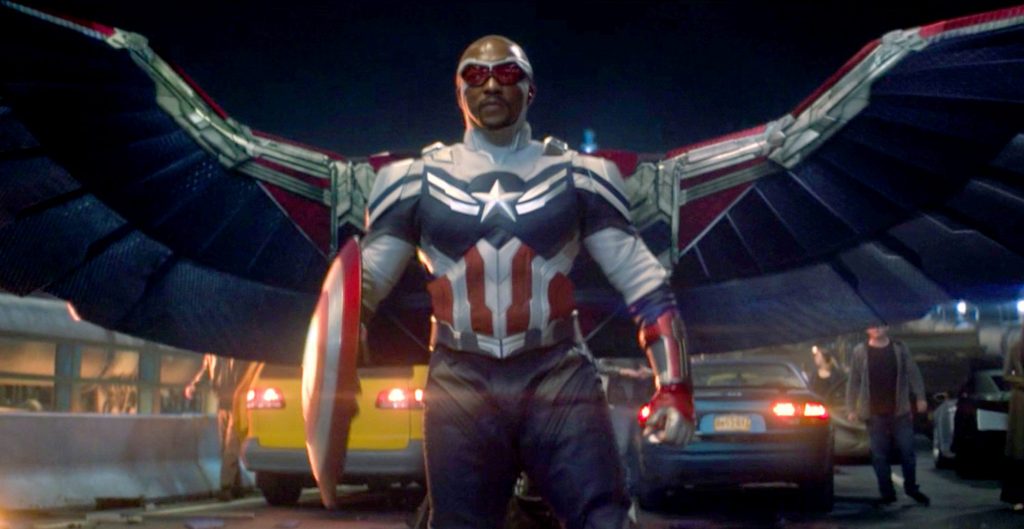
Their negligence and privilege gave them the mistaken idea that because Sam was best suited to be the next Captain America, he was obligated to do so despite America’s indifference – if not blatant prejudice in most cases – towards racial minorities. This is further explored as we get further insight into Bucky’s rehabilitation in Wakanda. Although the Wakandans used their advanced tech to return to Bucky his free will and autonomy, he repays them by freeing Baron Zemo, played by Daniel Brühl. Zemo assassinated King T’Chaka in “Captain America: Civil War” (2016). Besides a half-apology from Bucky where he acknowledges his and Steve’s oversight, these topics are rarely referenced, and the use of Black people as a means to a white end begins to stand out.
Additionally, Sam’s stance on the matter in regards to racial politics is rarely interrogated beyond him mentioning in the series that he did what he thought was right by not assuming the title and having it memorialized in a Smithsonian museum. Audiences come to understand that Sam’s political stances are that of a left leaning moderate Black man and veteran from Louisiana, who became a PTSD counselor for other veterans. However, when he visits Isaiah to discover more about being America’s first successful super-soldier subject, his resolve is not to interrogate his own political paradigms regarding their shared experiences as Black male veterans that had both been branded as criminals after serving their country in extraordinary circumstances.
Rather, after everything they had been through before and during the series, Sam sees it as an opportunity to prove that “things have changed” by championing the Captain America title with very little room to explore how he got to this point. The series does little to dig deep into who Sam is politically, what he thinks of the world in its current state, how those thoughts impact his actions and how all of these aspects of himself evolve or are interconnected throughout the show.
We come to understand what makes Sam clearly a much better Captain America than John Walker, played by Wyatt Russell, who was appointed to the title by the government. Nonetheless, we do not get to see how Sam himself reconciles the legacy of Captain America, as well as what it generally means to be a Black superhero.
The MCU lauds a Black veteran who was able to put his life on the line for the world and his country without any biological superhuman enhancements – but is ultimately branded a criminal during the events of Civil War. After fighting an intergalactic warlord and his army twice, Marvel missed the opportunity to use this six-episode series to more deeply reflect and examine the perspective of a character previously known as another side-kick to a white male superhero (akin to War Machine and Iron Man). The show introduces a lot of allusions and some symbolism towards the treatment and current state of Black people in America but does not do the legwork to continue the conversation.
Overall, the show is enjoyable. The gritty and fast-paced stunt scenes, fun teases towards X-Men-related content, and cameo appearances from the Dora Milaje of Wakanda, remind us why we have missed the MCU so much. However, Marvel continues to just barely miss the bar when it comes to addressing racial politics in meaningful and powerful ways. “Black Panther” (2018) and Marvel’s “Luke Cage” (2016) were the closest and most fully-realized projects to center race and the concept of Blackness. Coincidentally enough, those images and concepts of Blackness were in intra-community settings and centered on intra-community politics – meaning that there were Black characters played by Black actors dealing with Black issues in Black communities with Black directors and staff producing the content.
It is not lost upon any of us that the only times we are able to have robust conversations about race and politics are through Black-led projects. If these subjects are going to be the themes by which content is created in the MCU, then we cannot continue to be scared to investigate the deeper nuances that come along with them. In order to spark meaningful conversations around these topics, people must be led to examine their own political agendas, beliefs, and paradigms with projects that are comprehensive and show the complexities of living in a world that is diverse and ever-changing. Hopefully, the finale will wrap up some of those loose ends, and give us an ending that fully realizes the reasons that Sam becomes Captain America as more than a means to continue a legacy that is not his burden to carry, but rather a choice that audiences can understand and identify with.

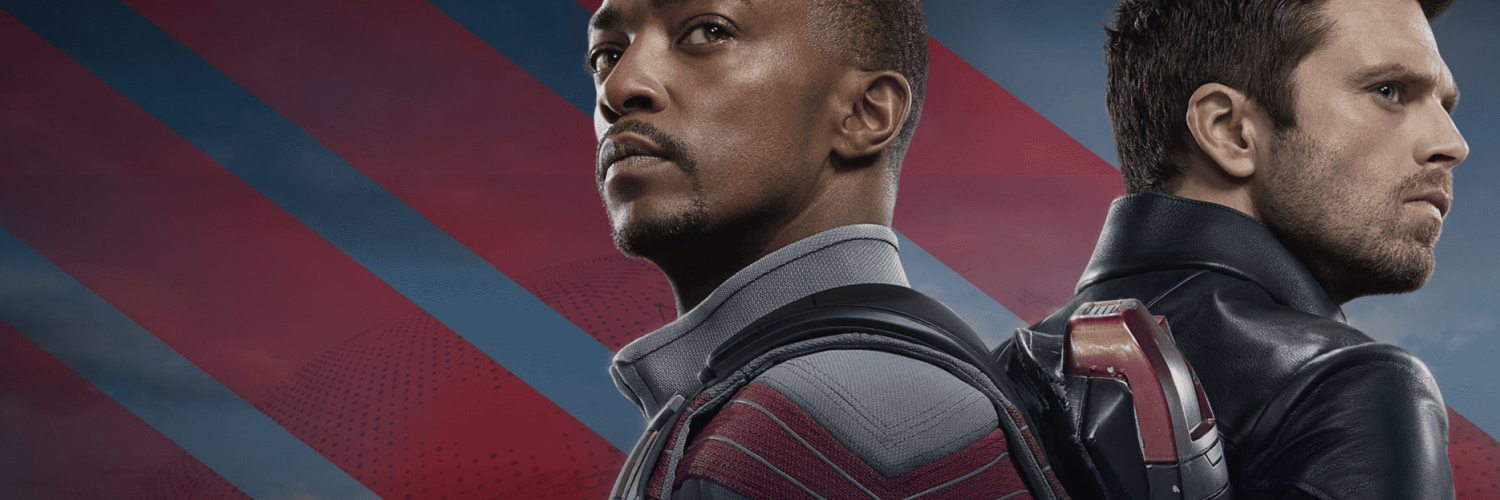





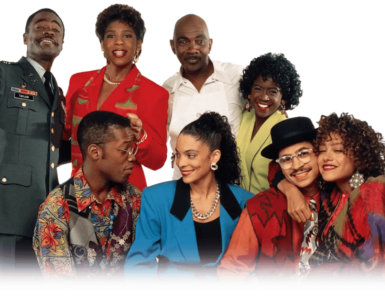

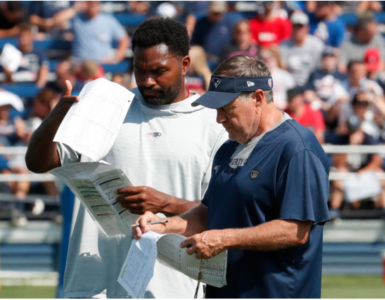
Recent Comments